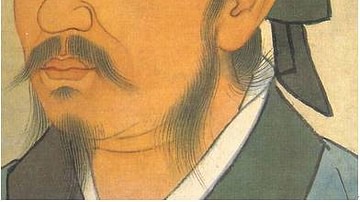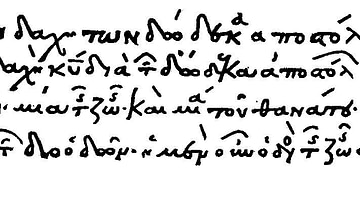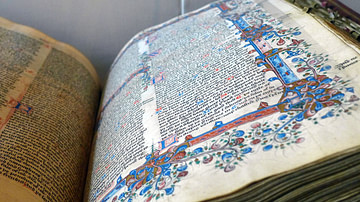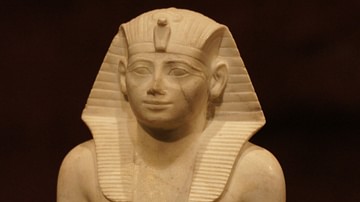Search
Remove Ads
Advertisement
Search Results

Definition
Xunzi
Xunzi (pronounced shund-zee, l. c. 310-c. 235 BCE) was a Confucian philosopher of the Warring States Period (c. 481-221 BCE) in China. He is also known as Hun Kuang, Hsun Tzu, Xun Tzu, and Xun Kuang. Xunxi translates as Master Xun and is...

Definition
Thales of Miletus
Thales of Miletus (l. c. 585 BCE) is regarded as the first Western philosopher and mathematician. He was born and lived in Miletus, a Greek colony in Ionia (modern Turkey) referenced as the birthplace of Greek Philosophy because of his high...

Article
The Contest between Odin & Thor
The poem called The Lay of Greybeard (Old Norse: Hárbarðsljóð) is one story from Norse mythology that relates an intriguing verbal fight between two of its essential gods, Thor and Odin. The poem consists of 60 stanzas and is found complete...

Article
The Didache: A Moral and Liturgical Document of Instruction
During the early years of Christianity, many of the church leaders or "Fathers" wrote down admonishments and instruction on what it meant to be a follower of Jesus as well as what liturgical ceremonies should be followed as a believer in...

Article
An Illustrated Glossary of Castle Architecture
Alure (Wall Walk) The walkway along the higher and interior part of a wall which often gives access to the higher floors of towers within the wall. Typically protected by battlements. Apse A semicircular projecting part of a...

Definition
Ancient India
India is a country in South Asia whose name comes from the Indus River. The name 'Bharata' is used as a designation for the country in their constitution referencing the ancient mythological emperor, Bharata, whose story is told, in part...

Definition
Confucianism
Confucianism is a philosophy developed in 6th-century BCE China, which is considered by some a secular-humanist belief system, by some a religion, and by others a social code. The broad range of subjects touched on by Confucianism lends itself...

Definition
Zhou Dynasty
The Zhou Dynasty (1046-256 BCE) was among the most culturally significant of the early Chinese dynasties and the longest lasting of any in China's history, divided into two periods: Western Zhou (1046-771 BCE) and Eastern Zhou (771-256 BCE...

Definition
English Reformation
The English Reformation began with Henry VIII of England (r. 1509-1547 CE) and continued in stages over the rest of the 16th century CE. The process witnessed the break away from the Catholic Church headed by the Pope in Rome. The Protestant...

Definition
Thutmose III
Thutmose III (also known as Tuthmosis III, r. 1458-1425 BCE) was the 6th king of Egypt's 18th Dynasty, one of the greatest military leaders in antiquity, and among the most effective and impressive monarchs in Egypt's history. His throne...